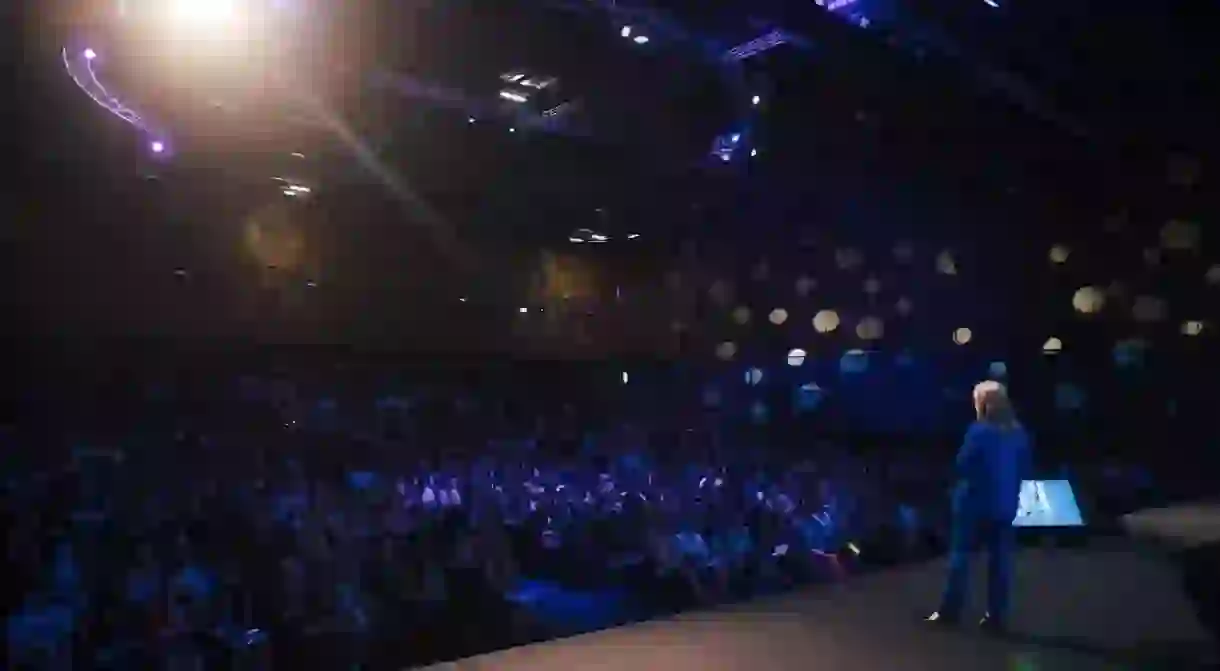Diversity Takes Centre Stage at London’s Women of Silicon Roundabout

At Women of Silicon Roundabout, tech leaders spoke to audiences about overcoming the industry’s gender gap, influencing culture change and empowering entrepreneurs to fulfil their potential.
“Everyone can programme. Go and do it,” said Jo Hannaford, head of technology at Goldman Sachs, on the main stage at Women of Silicon Roundabout. “Dispel the myth that women can’t programme. Stop saying, ‘Do you really think I can do this?’”
The straight-shooting speech set the tone for the two-day conference, where panellists and attendees focussed on action plans and no-nonsense directives as much as inspiring words.
Held at the ExCeL in London, halls overflowed as the nearly five thousand attendees weaved between recruitment stands, networked and bonded over plans to build entrepreneurial empires.
“I always thought being the token women at a tech conference was never a problem or barrier for me, but I must have been wrong,” said Fiona Hobbs, software engineer and head of technology at Opencast Software. “I’ve spoken to more people in the last hour than I have ever spoken to at a conference.”
In addition to speeches and recruitment drives, events were dedicated to tracks including exploring the the future of technology, building “purpose-aligned enterprises” and career and personal development workshops.

In a seminar zone and skills lab, female leaders operated career advice clinics, while innovators operated test beds for emerging technologies and gave skills taster classes, including a crash course on how to build a web application.

Meanwhile, at the Emerging Technologies stage, James Watson, client director at Imagination, outlined the ways technologists can leverage immersive technology, including virtual and augmented reality, to impact women’s lives, with demonstrations of pre-birth visualisation and pain relief. Later in the day, Marteka Swaby, co-founder of health advisory start-up Benevolent Health, discussed the complexities of mental health and explored how emerging digital technology can be utilised to build resilience and improve emotional wellbeing.
Web-led initiatives even had a physical presence, boosting interest and fostering real-life connections offline. PricewaterhouseCoopers’ Tech She Can Charter, a commitment by organisations to work together to increase the number of women working in technology in the UK, lobbied big businesses and start-ups to sign on. Whereas Diversify Your Feed, an initiative from Deloitte Digital, scanned visitors’ Twitter feeds for a precise gender breakdown of their following list in a effort to burst social media bubbles and amplify women’s voices online.
The palpable buzz from speakers and attendees offered a stark contrast to a recent report from the Office for National Statistics, which found that the number of women in UK tech had fallen from 33 percent in 2002 to just 27 percent in 2017.
“Fighting the diversity fight is hard,” said Damien Hooper-Campbell, eBay vice-president and chief diversity officer. “But remember who broke barriers to get you here and kick that damn door down for somebody who comes after you.”
For more on London’s female tech ecosystem, read our feature on the women’s collectives transforming London’s entrepreneurship scene.













